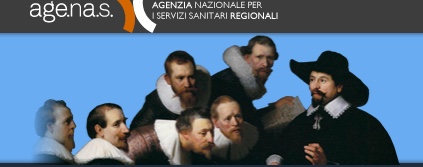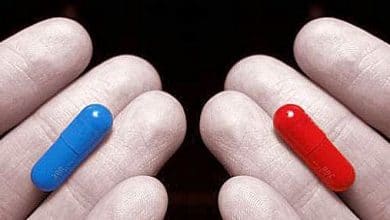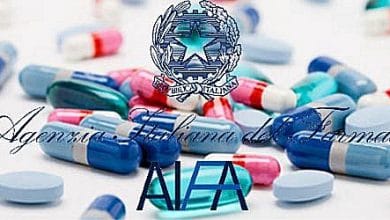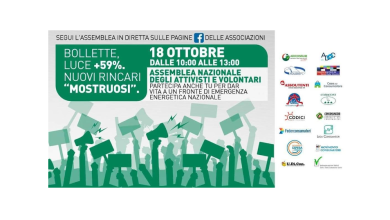
CME (Continuing Medical Education) is the process through which the health professional keeps himself updated to respond to the needs of patients, the needs of the Health Service and his own professional development.
Training includes the acquisition of new knowledge, skills and attitudes useful for competent and experienced practice.
Healthcare professionals have a deontologic obligationor to put new knowledge and skills into practice to offer qualitatively useful assistance. Therefore, take care of your patients with up-to-date skills, without conflicts of interest, in order to be a good healthcare professional.
 From 1 January 2008, the administrative management of the CME program and the support to National Commission for Continuing Education, hitherto competencies of the Ministry of Health, have been transferred to theNational Agency for Regional Health Services (agenas). Participation in an accredited educational initiative for the CME entitles you to the acquisition of credits.
From 1 January 2008, the administrative management of the CME program and the support to National Commission for Continuing Education, hitherto competencies of the Ministry of Health, have been transferred to theNational Agency for Regional Health Services (agenas). Participation in an accredited educational initiative for the CME entitles you to the acquisition of credits.
The assignment of CME credits can only take place on the occasion of a training process
– produced by an authorized organizer (Accredited Provider);
– carried out without any conditions of conflict of interest arising;
– assessable through specific documentation and/or with in situ or ex-post observations; responding to precise quality requirements relating, in particular, to the educational objectives pursued, to the teaching methods which are practiced and to the methods used to carry out the evaluation.
All subjects belonging to one of the health professions recognized by current legislation are recipients of the CME obligation.
The Co.Ge.APS (Consortium for Health Professions Registry Management) is a body that brings together the National Federations of Orders and the Associations of professionals involved in the Continuing Medical Education project and which manages the health registry. Through the institutional website it is possible, upon registration, to verify all CME credits since 2002.
Conflict of Interest
Conflict of interest is any situation in which a secondary interest interferes or could interfere with the primary interest consisting in the objectivity, impartiality, independence of the professional training of the health sector connected to the CME Program. In the new indications, Agenas has paid close attention to the definition of conflict of interest and the possible influence of the sponsor in scientific training through very restrictive rules which can be summarized as follows:
- The Scientific Responsible of an ECM event cannot have had direct relationships in the last 2 years with subjects that produce, distribute, market and advertise products of health interest.
 If the rapporteur has had direct relationships in the last 2 years with the subjects mentioned above, he must declare these relationships at the beginning of his relationship.
If the rapporteur has had direct relationships in the last 2 years with the subjects mentioned above, he must declare these relationships at the beginning of his relationship.- Advertising is not permitted inside the congress spaces, not even on badges or badge holder lanyards
- The congress spaces cannot be inside the structures of subjects that produce, distribute, market and advertise products of health interest.
- The supply of a sponsor's notepad and pen is permitted as long as it is not included in the congress kit but is available to the participant in a dedicated space. This sponsor's material must not contain explicit references to pharmaceutical products.
- It is permitted that the advertising of specific products of health interest (drugs, medical-surgical instruments and devices, etc.) can be made in rooms adjacent to those dedicated to the ECM.
- AND' allowed the presence of n. 2 informants (for sponsors) within the hall but must not be recognizable through their company brands
- The provider cannot organize and manage promotional events directly with the sponsor
- Direct recruitment is allowed for all types of training (RES, FAD and FSC) respecting the maximum measure of 1/3 of the annual credits
 What is meant by Direct Recruitment?
What is meant by Direct Recruitment?
The Commercial Sponsor can promote a CME event by recruiting healthcare professionals, providing economic support for participation in the event (registration, travel, accommodation expenses, etc.). In order to avoid situations of conditioning of the professional or a selection of the users of a training event, Agenas has resolved to limit the direct recruitment by commercial sponsors to a maximum of one third (50 out of 150 credits in the three-year period) of the training debt of every health professional.
If a professional has achieved e.g. 80 CME credits with recruitment, 30 will inevitably be lost when finalizing the COGEAPS. In the case of direct recruitment, a company that invites healthcare professionals to attend the training event, at its own expense, must provide the Provider with the list names of invited participants. The individual participant will have to declare the status of "recruited" or "not recruited" at the beginning of the training event, in fact in the event that the participant's registration fee is paid by the recruiting company (which may also not be a sponsor of the event), the provider must provide evidence of the recruitment by reporting it in the event reporting file.
Recruitment is allowed for all types of training (RES, FAD, FSC) with the same limits. Actions involving a simple dissemination of the event through the distribution of information material to professionals are not considered recruitment.
Retrieved from NurseTimes – Source Co.Ge.APS





